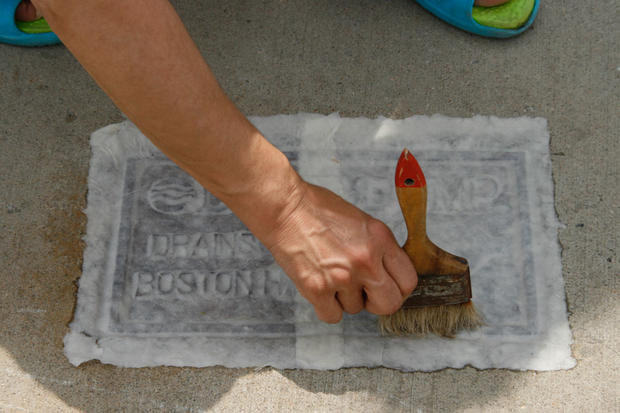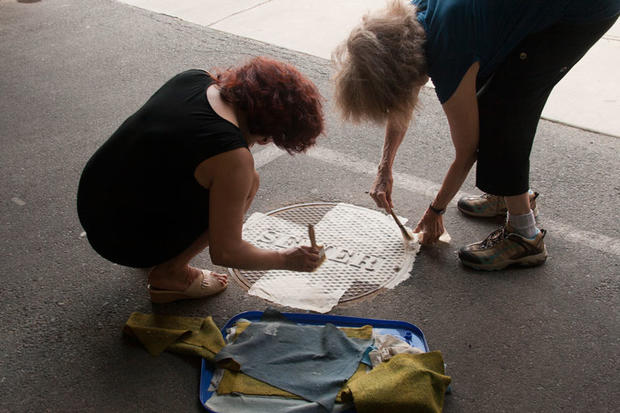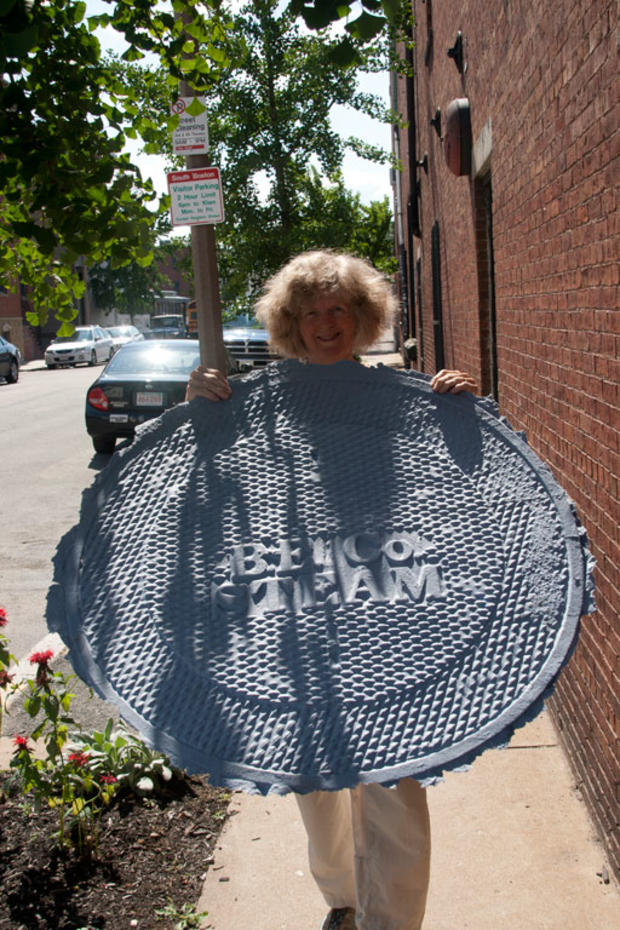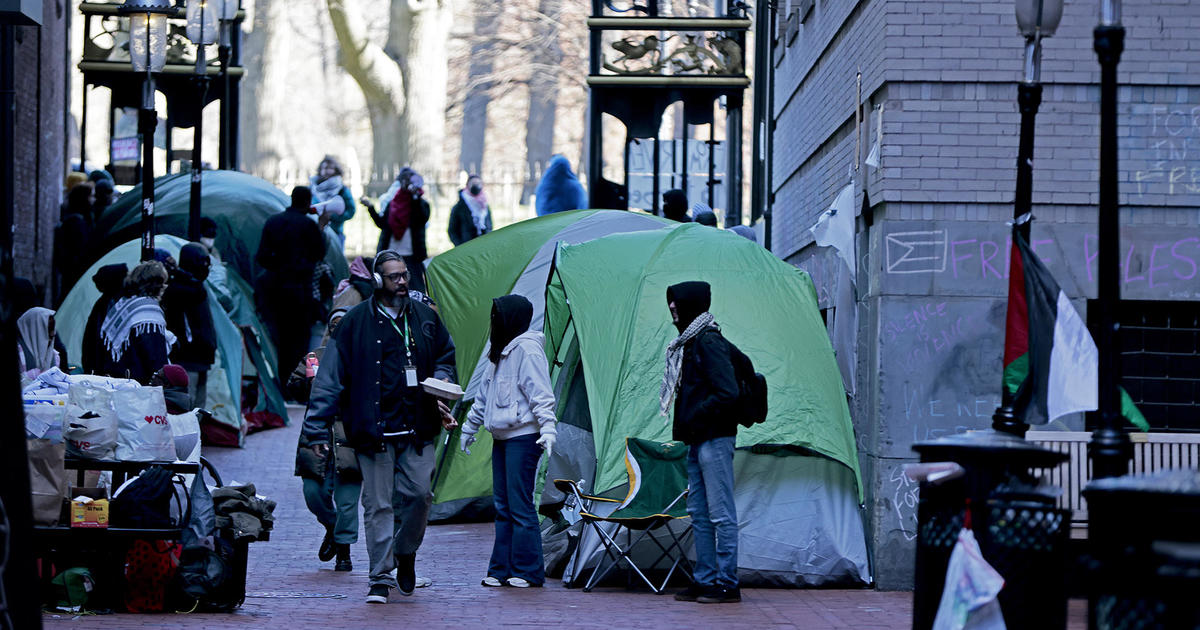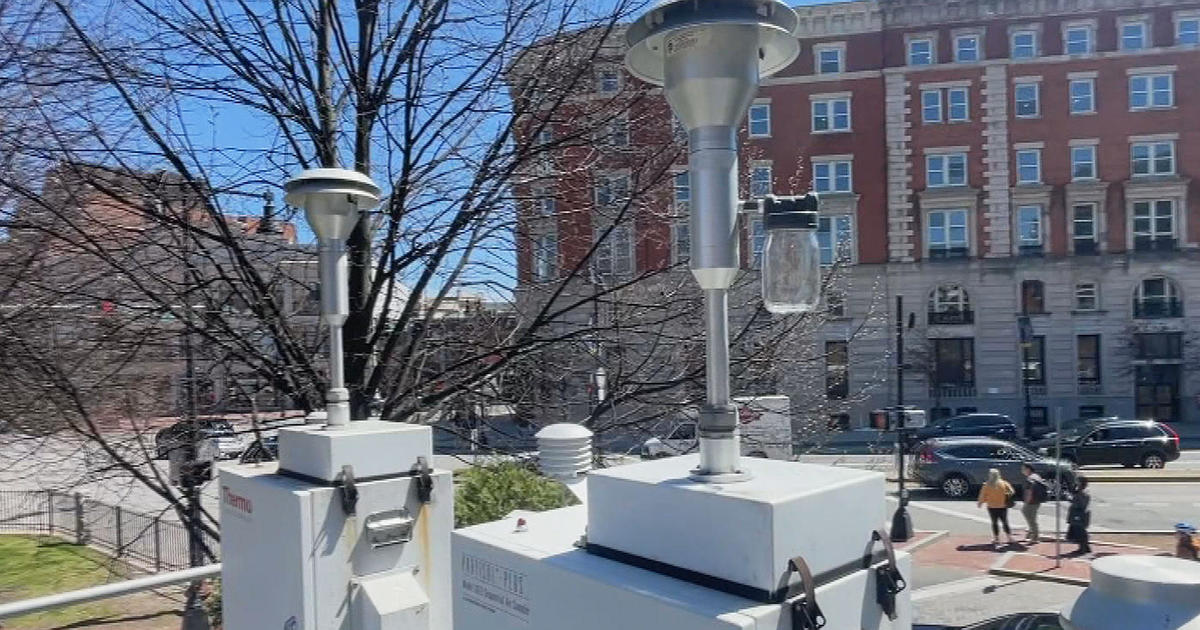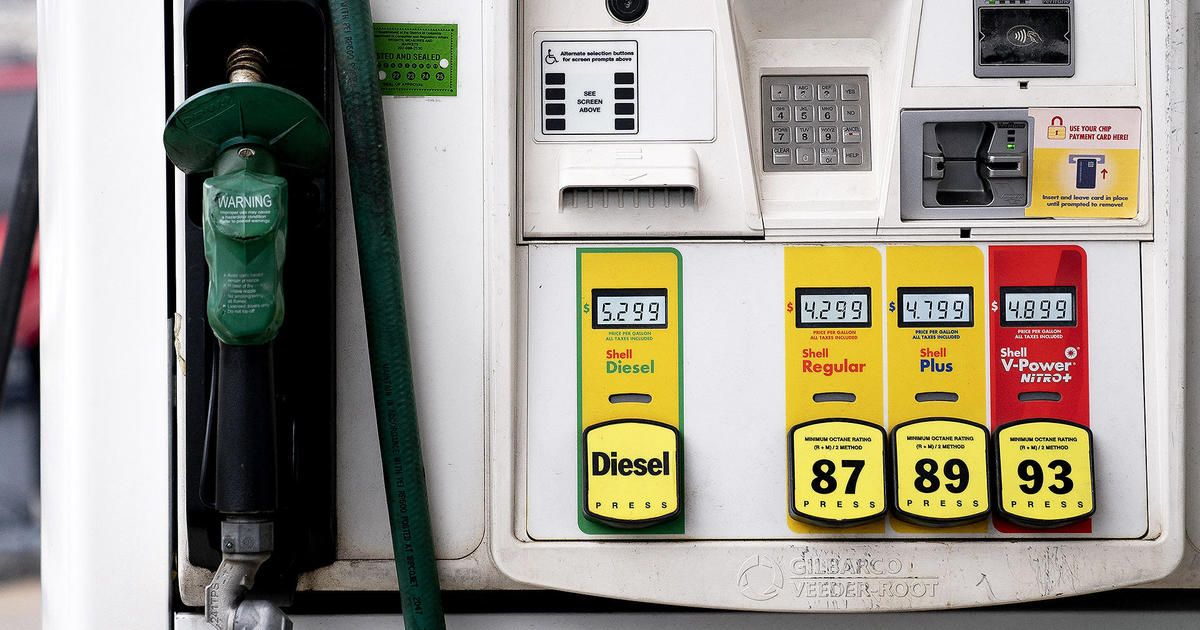Saving Boston's Waterways, One Sheet Of Paper At A Time
BOSTON (CBS) - Boston Don't Dump is an environmental art project by international artist Jane Ingram Allen. It features handmade paper artworks focused on the environmental issue of urban runoff and the pollution of Boston's waterways.
Supported by a grant to the artist by The Puffin Foundation, the project began on June 29 with a two-week artist in residency at the Distillery Gallery in South Boston. Boston Don't Dump, which continues through August 13, encourages the public to join the artist in making handmade paper and putting the wet, newly formed sheets out to dry in a strange place - the metal sidewalk signs found on many Boston corners that say "Don't Dump – Drains to Boston Harbor" (or other Boston waterways).
Jane Ingram Allen discussed the project recently with CBSBoston.com, sharing her insights on environmental art, and her work as an artist in the U.S. and Taiwan (where she has lived and worked since going there in 2004 as Fulbright scholar artist-in-residence).
CBSBoston.com: How did this project come about?
Jane Ingram Allen: The "Boston Don't Dump Project" hopes to raise some public awareness of the problems of water pollution and emphasize that all the waterways are connected and eventually run into the ocean. It came about from my spending time in Jamaica Plain visiting my son Chris Allen and his wife Rebecca at their home, and walking around the streets of JP and Boston. I noticed the metal street signs at many corners in front of a storm drain that said things like "Don't Dump - Drains to Boston Harbor." I liked the rusted metal look and thought they would be perfect for casting with handmade paper to capture this as an embossment.
I think this type of sign is unique to Boston and I have never seen it anywhere else. I am particularly drawn to metal manhole covers and have observed interesting ones in many cities where I have lived and traveled. I know that Boston has a problem with keeping rivers and waterways clean. Things are improving but it is something that still needs work and continual public attention. I find that art is a great way to do this. Most people in Boston I have talked with about my project tell me they never noticed those "Don't Dump" signs before.
CBSBoston.com: How did you start doing handmade paper artwork? What makes it a perfect medium for the Boston Don't Dump Project -- or any environmental art project?
JIA: I started doing handmade paper artwork about 1970 after taking a one-day papermaking workshop. I have been doing it since as a major part of my artwork and enjoy the whole process. Paper is cheap, but can be very special and it is a common material used in most all cultures, and something that every artist uses. I thought it was perfect for this project or any environmental art project because it is made from plant fibers and entirely recyclable. I also use renewable resources for my papermaking and it does not involve cutting down trees. Much of the paper for this project is made from abaca pulp (a type of banana leaf fiber from the Philippines) that I purchased from a supplier in Brooklyn.
CBSBoston.com: You've had residencies in different countries around the world, how would you compare the art communities in the countries where you have worked and lived to the art community here in the US?
JIA: Yes, I have worked in many different countries, and I found that artists and art communities are much the same everywhere. I enjoy the stimulation of working around other artists and the Distillery Gallery is in a building of artists' studios. For the past 7 years I have lived and worked in Taiwan after coming there in 2004 with a Fulbright grant to be an artist in residence and make my work with handmade paper from the local plants. I do think Boston has a strong art community and with so many creative people, museums, galleries, universities… it makes for a stimulating environment.
CBSBoston.com: Why is it important to you to have active participation from the public? Is working with public art installations more appealing to you than exhibiting in a more controlled gallery setting?
JIA: I like doing community art projects that involve people as more than just passive viewers. I find that when people participate they understand what artists do and can contribute to your ideas and process in many unexpected ways. For this project an artist who lives in Cambridge, but is originally from Lebanon, Nelida Nassar, has volunteered to help me for the two weeks. This project has really become something like street art, and sometimes, I feel like a performance artist, since I am putting the paper to dry on manhole covers around the South Boston neighborhood of the Distillery Gallery, and many people stop to ask what I am doing and why and learn about the project.
Boston Don't Dump
Through August 13
Opening Reception is July 14, 7 p.m. – 9 p.m.
Distillery Gallery
516 East Second Street
South Boston, MA
Hours: Mon – Sat 9 am – 5 pm
Website
Interview by Stephanie Valera, CBS Local
